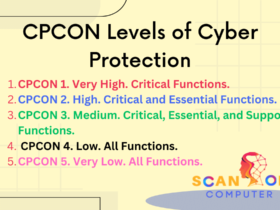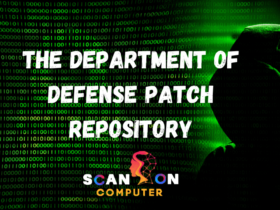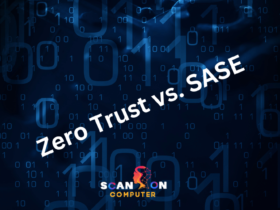DISA is responsible for ensuring the greatest level of system security across government networks. They do this by configuring commercial off-the-shelf software, servers, and network devices in a way that reduces risks to wider systems.
Maintaining compliance can be an arduous task when STIGs change frequently and updates must be implemented regularly, but automated tools now make the task simpler.
Electronic Benefit Transfer (EBT) Cards
EBT cards are the primary method of disbursing food assistance benefits in most states. SNAP benefits are loaded onto each EBT card and can be spent at authorized retailers similar to debit and credit cards. Each EBT card also contains its own PIN, used to secure recipient accounts and track spending habits.
The card system first made its debut in 2004 for payments through Supplemental Nutrition Assistance Program (SNAP), then gradually implemented across other government nutritional programs such as Cash Benefits from Food Stamp and Temporary Assistance to Needy Families programs.
Once approved for benefits, individuals are given an EBT card containing their monthly benefit amount deposited into an electronic benefit account. They can use this card like any debit card at authorized retailers such as supermarkets, farmers markets and restaurants or coffee shops; it may even be accepted at ATM machines and point-of-sale terminals.
EBT cards can be used by all members of a household, including children, providing they have their cardholder’s secret PIN number. In the event that it becomes lost or stolen, its holder should notify their local EBT office as soon as possible to report it. Cardholders can also use EBT to make online purchases through various websites – though specific processes will differ.
Food assistance cards have the added advantage of decreasing stigma around food assistance benefits while also providing recipients with cross-state shopping privileges. For instance, an Oregon SNAP participant could use his benefits at a California farmers market to purchase eligible items that qualify as cross-state shopping; this practice is popular among SNAP participants and known as cross-state shopping.
EBT transactions are processed efficiently with most states using one vendor called Quest to process them; any retailer with a Qest-authorized EBT card reader can accept food assistance benefits from all 50 states as long as their cardholder resides there. Retailers that wish to accept EBT can apply for a merchant account through Quest and purchase or rent equipment necessary to process transactions successfully.
Electronic Transfer of Benefits (ETB) Programs
Electronic Benefits Transfer, or EBT, is the delivery system used for Supplemental Nutrition Assistance Program (SNAP), WIC and other benefits to eligible families. EBT does not impact eligibility determination or benefit levels – instead it facilitates delivery through a central computer database which customers access at point-of-sale using reusable plastic cards called Benefit Security cards in Tennessee.
Once someone is eligible for a program, their information is sent to the state EBT contractor who sets up an account in their name and deposits funds monthly. Each EBT card has its own Personal Identification Number that only the recipient knows; recipients can then use it at stores accepting SNAP to purchase food as well as withdraw cash using it.
During the COVID-19 pandemic, the federal government implemented the Pandemic Electronic Benefits Transfer (P-EBT) system, offering benefits similar to SNAP through EBT cards. These temporary emergency nutrition benefits were loaded onto cards for children who would have qualified for free or reduced-price school meals but didn’t due to schools closing or operating at reduced schedules during this outbreak.
All SNAP recipients are provided an EBT card that functions similarly to a debit card. Accompanied by instructions for its use and designed to keep funds secure and safe, only those with knowledge of their PIN can gain access. Furthermore, in addition to being used at stores accepting SNAP funds online retailers also accept the card for purchases using it as payment.
Each state uses its own EBT system, with counties being responsible for determining eligibility. Once eligibility has been confirmed, information is sent directly to the EBT vendor who then processes and distributes benefits amounts accordingly. Depending on which state a beneficiary lives in, some restrictions may also apply when using their card.
Eligible Individuals
Supplemental Nutrition Assistance Program provides food to families on low incomes and is one of the most successful programs to assist poor people to move out of poverty. It has an especially profound impactful on households with children as well as elder or disabled members living there.
SNAP benefits provide relief to millions of working individuals who make too little to afford enough food, including retail workers, service personnel and farmers who lack health insurance or paid sick leave coverage. With its flexible benefits package and support of family budgeting initiatives, this program allows millions of working individuals access food that they cannot otherwise afford.
SNAP benefits are loaded onto an EBT card that can be used at over 254,000 retailers to purchase food. Unfortunately, however, SNAP cannot be used to buy alcohol, cigarettes, paper products, pet food or any nonfood items; families receive monthly benefit amounts that are loaded onto their EBT cards; however most spend about 80 percent of them at grocery stores or supermarkets; moreover “Meals on Wheels” programs and services for people over age 60 accept SNAP benefits as payment for congregate meals.
States have wide latitude in developing eligibility determination systems for Supplemental Nutrition Assistance Program, or SNAP. A variety of circumstances can impede an individual household from meeting its eligibility requirements – for instance, people on strike (such as those working in Washington state’s logging industry) and individuals convicted of drug felonies in certain states do not qualify. Furthermore, parents who have children with disabilities must satisfy specific requirements in order to be eligible for benefits.
Numerous states have instituted work reporting requirements for some recipients of Supplemental Nutrition Assistance Program (SNAP) benefits. While numerous studies have demonstrated that such requirements don’t increase employment outcomes, they have cut food access for many of those impacted by this policy change. As such, several states have proposed exemptions to this work-reporting requirement that would help families impacted by it.













